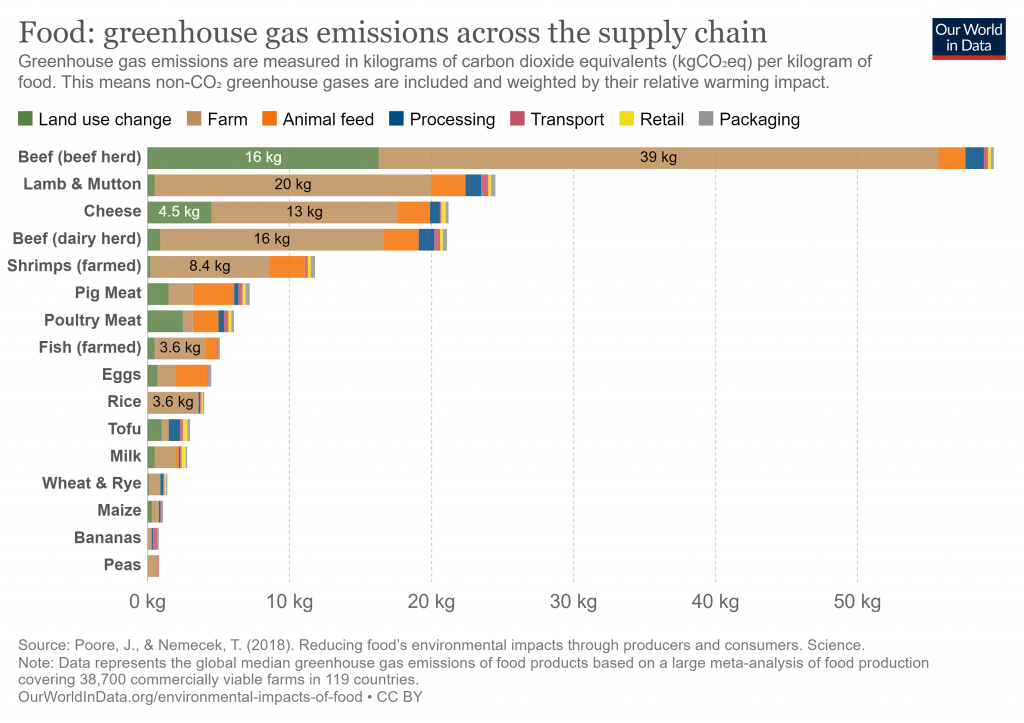The future of food: Can you eat to save the climate?

- There’s a growing interest in climate-friendly foods, but consumers find it hard to know if the food choices they make are environmentally sustainable;
- From ready-made snacks to algae, cacti and grains, options for climate beneficial foods are increasing;
- With better supply chain structures, food producers can have greater access to these ingredients too.
With the food system responsible for a third of overall global CO2 emissions, attention on climate beneficial foods has been slowly but steadily increasing. According to IFIC’s 2020 Food and Health Survey, 6 in 10 consumers in the US say it is important that the food products they purchase or consume are produced in an environmentally sustainable way.
That’s great, right? Not so fast: the same report also points out that, despite this increased interest, consumers find the buzzing and sometimes obscure world of climate beneficial food puzzling. From complex labels to opaque sourcing and unclear carbon impact, 6 in 10 consumers say it is hard to know if the food choices they make are environmentally sustainable; of those, 63% say it would have a greater influence on their choices if it were easier. There are even examples of people sharing their frustration.
From food and beverage companies to universities and non-profits, the sustainable food development and communication industry is experiencing a real boost but has a long way to go before making the transition to a more sustainable diet seamless for consumers. Here’s some inspiration for consumers looking to make the change:
Ready to eat and drink
If you want to introduce more climate-beneficial food into your diet but don’t have time to go to the farmer’s market every week or to cook your own food on a daily basis, a first positive step could be turning to sustainable snacks that are ready to eat or drink and can perfectly fit into your busy everyday schedule.
Some brands’ ingredients come from a fully traceable network involving verified regenerative agriculture farmers who have built soil health into their cultivation methods. Look for snack providers who are investing in recyclable packaging, carbon offsetting and a shortened supply chain, so as to reduce the impact of transportation while keeping ingredients fresh and preserving their flavour, to explore all the climate benefits of these products.
Climate-beneficial foods can also give food waste products a new lease of life. Avocado seeds, for example, have been used to brew a drink rich in antioxidants and low in calories unlocking access to a nutrition source that has so far remained unexplored.
Simple ingredients
If you feel a bit bolder and want to give a sustainable shift to your cooking, why not add some unusual ingredients to your diet? This category includes both new and innovative options that have started making their way to the global market only recently; and options that have been part of our culinary tradition for ages but partially forgotten due to the cannibalization of their market share by more popular ingredients.
- Algae: combining their carbon-negative profile with sustainable sourcing, algae have the potential to change the food system for the better while being good for your health, thanks to their essential fatty acids and high vitamin and antioxidants content. Although may not appeal to the most squeamish consumers, algae actually possess a meat-like, umami flavour that makes them an ideal replacement for meat. They can also be dried and minced to obtain healthy salt-like condiments and dressings.
- Cacti: many varieties of cacti are edible and contain high amounts of vitamins C and E, carotenoids, fibre and amino acids. Cacti stems have long been part of the Mexican culinary tradition and are now starting to enter the international market through new, delicious concepts.
- Uncommon grains: if you don’t feel like revolutionizing your diet with unusual ingredients, you can opt for a more gradual change by diversifying your sources of carbohydrates. Despite the existence of 21 different families of grains, at the moment rice, wheat and maize make up more than 50% of global cereal consumption. Opting for diverse grain varieties (like amaranth, fonio or buckwheat) will not only provide you with more nutritional value, but also help improve soil health and preserve biodiversity.
As a general reference, you can find lots of inspiring ingredients and ideas in the Future 50 Foods report.
Processed ingredients
It may be hard to believe, but processed foods can be just as climate-beneficial as unprocessed ones. Feeling sceptical? What began as an internal initiative of beer giant ABInbev to reduce its waste is now a fully independent company turning beer-production by-products into nutritious and versatile flours. Can you imagine making delicious pasta, cookies or bread with something that, until yesterday, was destined for the bin?
Elsewhere, climate-beneficial foods are reducing food waste by making use of products that would otherwise not make it to the market because of their appearance or size. This is how green banana powder is produced, for example. It combines the textural properties of starch and the nutritional benefits of bananas. It’s tasteless and can be used as a substitute for traditional flour for healthier and gluten-free solutions or as a clean-label binding agent in place of chemicals. It’s also great for adding texture and prebiotic fibre to a recipe.
There are plenty of climate-beneficial food options already on the market with more and more are expected in the near future. The next steps to make the most of such an endless potential lie in initiatives aimed at increasing education on the topic among final consumers, as well as in building more structured supply chains so as to make it easier for producers to get access to the above-mentioned ingredients.
Although it’s easy to feel overwhelmed by the amount or lack of information, it’s important not to let yourself be discouraged: a better future for humans and the planet is just a forkful away.
weforum.org



